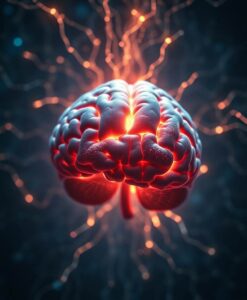The team used compounds designed to reach those mitochondrial reactive molecules where they form, and in mouse models they observed reduced inflammation and less neuronal damage. Those results suggest an approach that aims treatments at a focused biochemical trigger rather than broadly dampening the brain’s defenses. That kind of precision could change how we think about preventing progressive loss of thinking and memory.

If these findings translate to people, they could influence who benefits from future therapies and how early interventions are deployed. The work raises questions about which brain cell types and molecular reactions shape vulnerability to disease, and whether targeting tiny sources of stress can preserve function across diverse forms of dementia. Follow the full article to explore the experiments, potential paths to human treatment, and what this means for broader efforts to protect cognitive health and inclusion as people age.
Weill Cornell researchers uncovered how free radicals from astrocyte mitochondria can fuel dementia. Using new compounds that target these radicals at their source, they slowed brain inflammation and neuronal damage in mice. The findings reveal a potential breakthrough for treating diseases like Alzheimer’s and frontotemporal dementia by focusing on the precise mechanisms driving degeneration.


